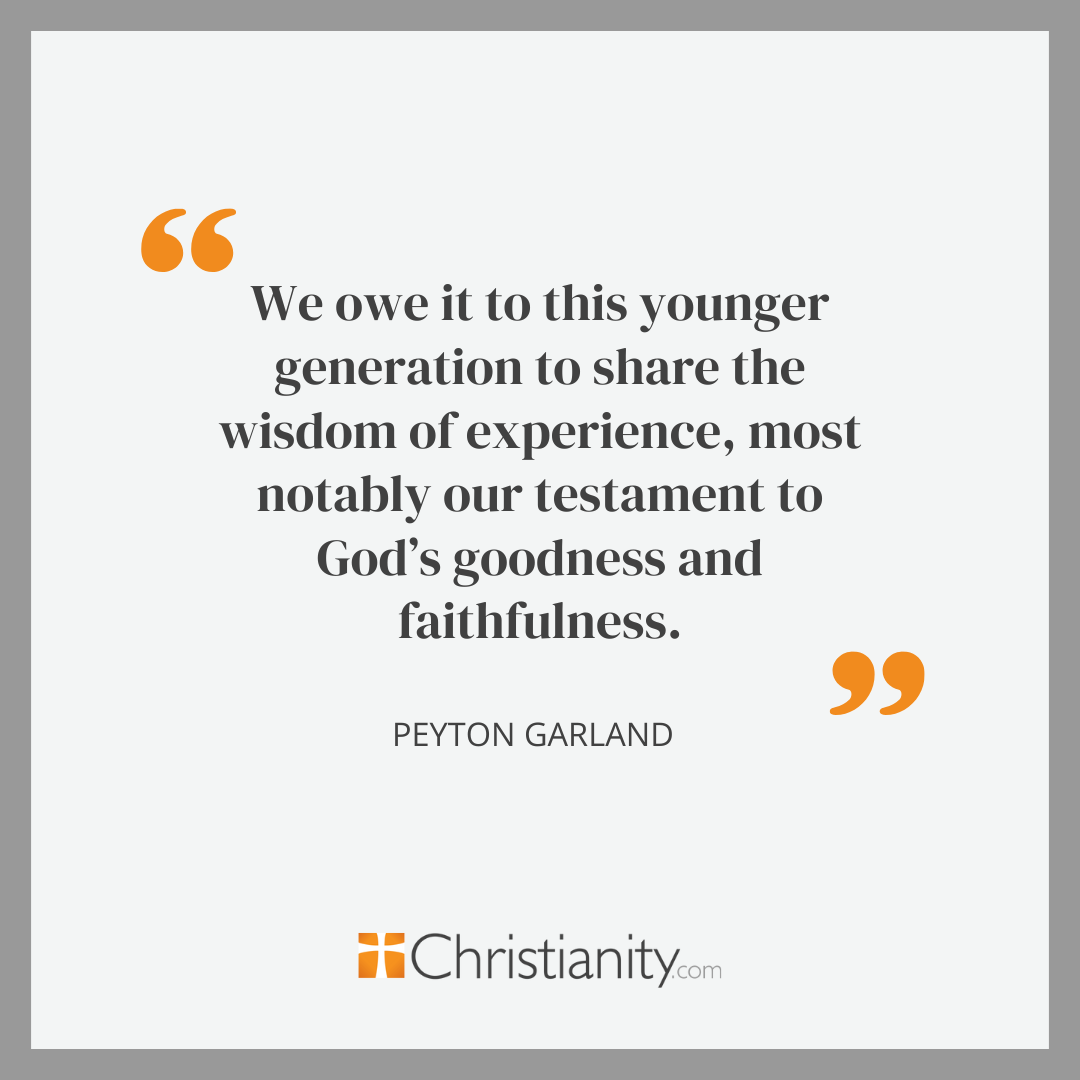My husband and I chuckle at the subtle signs that we are aging. At first, it was comparing each other’s gray hairs, seeing whose roots held onto their youth the longest. Now, it’s watching college football and realizing we were on the cusp of earning our learner’s permits when these kiddos were fresh out of the womb. But my favorite, by far, is when we discuss the generation younger than us, starting our sentences with the ever-classic, “Kids these days…”
Gen Z is much more fiery than I remember my Millennial friends and I being. They have strong opinions, and, more often than not, they aren’t afraid to share them, regardless of differing viewpoints in the room. That doesn’t mean these opinions are always correct. Clearly, youth, naivety, and a lack of experience are easily paired. Consider some of those “great” decisions you made in middle or high school…
Nonetheless, when people are spirited and willing to share their thoughts, such energy shouldn’t be wasted. We owe it to this younger generation to share the wisdom of experience, most notably our testament to God’s goodness and faithfulness. There’s no better time to share this good news than now, when undeniable statistics show a gap of disagreement between Gen Z. They, too, weren’t immune to the divisive nature of last year’s election, and, for many, this was their first taste of voting. Unfortunately, their introduction into a democratic society was nothing short of mudslinging media manipulation.
A recent NBC News poll shows a concerning gender gap among Gen Z, where priorities between men and women are starkly different. Young men who supported Donald Trump ranked marriage and children as the top signs of success. Meanwhile, young women who backed Kamala Harris placed family lower, but emphasized career and emotional stability as the most important means of fulfillment. These findings suggest that politics now shape not just votes, but cultural values, family priorities, and the ideas of meaning and purpose.
It appears to be a destructive battle of the sexes among our most fiery generation yet, which leads Christians to wonder: When a generation defines success in opposing ways, how can the Church offer a vision of wholeness—where identity, work, family, and faith are integrated under Christ?

Restoring the Beauty of Marriage
Divorce is far too common, even in Christian communities, so it shouldn’t surprise us when Gen Z women don’t recognize any value in the institution of marriage. Why vow yourself to something that’s sure to end in heartache and misery?
Many churches are quick to offer counseling for couples whose marriages are falling apart, but far too few promote the value of counseling when marriages are thriving. We’ve fooled ourselves if we believe the fun, easy seasons will always last. And we’ve certainly deceived ourselves if we think we have grown as much as we can in our marriage, as if this relationship of self-sacrifice and purification won’t continue to shape us into image-bearers of Christ in a sinful world.
The hard reality is that if we aren’t willing to check in when things are going well, we certainly won’t when things get hard. In the tumult of life, marriage counseling will be just one more stressor. It will be one more hard, awkward conversation we must have about why everything is going wrong.
We are never too seasoned or experienced to continue nurturing our marriages. And if we want the next generation, particularly women, to find value in marriage, we must present a healthy example of the institution.
This covenant relationship deserves for thoughtful attention than the traditional “love” sermon near Valentine’s Day. It deserves far more than the silence we’ve allowed. Today’s sinful culture has taken the megaphone and twisted marriage into something it’s not, allowing false narratives to either excuse our self-righteousness or make us fearful of any romantic relationship.
Pastors, I encourage you to match the fire of Gen Z behind the pulpit as you share and defend the beautiful covenant of marriage, and I ask that you likewise spur young men on to be true leaders, men who respect women and their God-given roles so much so that today’s young women feel safe to enter into a vow that’s meant to last their entire lives.
Recognizing Realistic Expectations Regarding Contribution
Given today’s work culture, particularly in America, it shouldn’t surprise us that Gen Z men and women have further divided the gap between one another. Culture has unrealistic expectations regarding what it means for both parties to contribute, and when it uses gender as a means to polarize people, the consequences for a society are detrimental.
As a mother who has worked full-time and now stays at home full-time, I can testify that no matter which role a woman chooses, she loses, to some degree. If she works full-time, she often misses time she could spend cultivating her home, nurturing her babies, homeschooling her older children, etc. Meanwhile, if she stays at home, what does it mean for her to have money? To spend money she technically didn’t make?
Women are put in an impossible situation in today’s work culture, and it’s up to levelheaded, God-honoring Christians, particularly men, to recognize the realistic expectations we should hold regarding household contributions.
Thankfully, I have a fantastic, hard-working husband who, when I decided I wanted to stay at home with my son full-time, quickly calculated how much money I was saving our family, aka “making,” by becoming a stay-at-home mom. After you calculate daycare, grocery delivery fees, cleaning fees, etc., it’s a pretty penny that adds up, showing that women who stay at home are contributing significantly to the finances of the home. With this mindset, contributions are valued by both parties, money is healthily spent, and a woman feels as though she’s valued in the family unit.
Meanwhile, it’s easy for men to feel unseen, especially if they work blue-collar jobs or must constantly be away from home to earn money that provides for their families. In my marriage, I’ve learned that a simple, “I see how hard you work to provide for us, and I appreciate it so much,” goes a long, long way.
One minute, we want men strong, tough, and unbothered by life’s sacrifices, but another, we want them compassionate, tenderhearted, and willing to open up and empathize with us. They can’t be both, or neither, truly, if they don’t feel loved, treasured, and seen by their contributions to the family.
Bridging the Gap
The only way to bridge this undeniable gender gap is a mutual respect for one another, and if the Church only stokes the fire of hate, glorifies culture’s gender narrative, or worse, stays silent regarding biblical truth, how can we ever expect this young generation to look to Christ for their worth? How can we expect them to recognize their God-given differences as men and women and how those differences are meant to serve a greater purpose, best advanced when they respect, love, and treasure one another?
We like to blame the “kids these days” for our cultural climate, but is this destruction not what we, as the older generation, have set the stage for? Has our silence, indifference, fear, and selfishness paved the way for an unhealthy battle of the sexes, leaving our youngest, most inexperienced members of society without a roadmap to the eternal hope and love of Christ?
Millennials, Gen X, Baby Boomers, it’s time we restore the narrative of identity, faith, and love.
Photo Credit: ©Unsplash/Eliott Reyna





